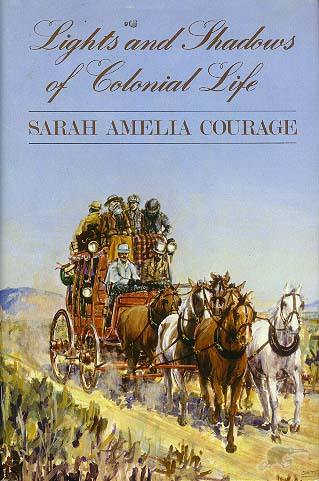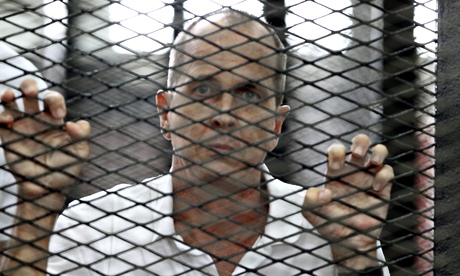November 15 is marked around the world as The International Day of the Imprisoned Writer. This was started in 1981 by PEN, the international writers’
organisation, to acknowledge those writers around the world who are subject to
political, economic or other forms of repression.
Here in New Zealand we call it Courage Day, but many people don’t know
why, or assume it is called Courage Day across the world, because the name seems
so appropriate.
New Zealand Society of Authors (NZSA) members are encouraged every year to mark this day in some way. In the
past, we have had some compelling speakers who have helped us to explore the
idea of courage in writing.
This year, a small but committed group of NZSA Wellington branch members met on Thursday
13 November to explore the meaning behind Courage Day and to remember, acknowledge
and support those writers who are imprisoned or in danger because of what they
write. An empty chair stood as a silent representative of those who cannot
come to this or any other meeting because they are in prison or under
restraint, due to their writing.
- The story behind Courage Day
Courage Day is named
after two writers, Sarah and James Courage (grandmother and grandson). You can
read about them on the Christchurch City libraries website.
Sarah Amelia Courage (1845? – 1901) wrote a memoir in about
1896 called Lights and shadows of colonial
life: twenty six years in Canterbury, New Zealand (by “A settler’s wife”). Many
copies were burned by angry neighbours who didn’t like what she had written about
them. James Courage’s 1959 novel, A
way of love, was banned as indecent
because he dared to write about homosexual love.

Heather Hapeta
reminded us of other NZ writers and artists whose work has been banned over the
years, including Eddie Rout (Safe
marriage, 1926), Jean Devanny (The
butcher shop, 1926) and Ans Westra (Washday
at the Pa, 1964).
Maggie Rainey-Smith spoke about the jailed Australian al-Jazeera journalist Peter Greste, imprisoned in Egypt with two colleagues since June 2014 on charges of “aiding terrorists, smearing Egypt, and doctoring footage”. A newly issued decree allowing the deportation of foreigners accused of crimes on Egyptian soil is news that may hopefully lead to his release. Maggie spoke of hearing his mother interviewed on Radio NZ about how heart-wrenching it was to see her son appear in a Cairo court, shackled and without a translator. Elsewhere, Lois Greste has described visiting her son in an Egyptian prison for the first time as one of the most difficult days of her life.
Maggie Rainey-Smith spoke about the jailed Australian al-Jazeera journalist Peter Greste, imprisoned in Egypt with two colleagues since June 2014 on charges of “aiding terrorists, smearing Egypt, and doctoring footage”. A newly issued decree allowing the deportation of foreigners accused of crimes on Egyptian soil is news that may hopefully lead to his release. Maggie spoke of hearing his mother interviewed on Radio NZ about how heart-wrenching it was to see her son appear in a Cairo court, shackled and without a translator. Elsewhere, Lois Greste has described visiting her son in an Egyptian prison for the first time as one of the most difficult days of her life.
 |
| Jailed al-Jazeera journalist Peter Greste, who was among three men jailed in Cairo in June on terror charges. Photograph: Khaled Elfiqi/EPA |
Lesley Marshall is the NZSA Writers in Prison committee co-ordinator and sends out numerous postcards to imprisoned writers. Recently she received a reply from Aron Atabek, a Kazakhstan poet imprisoned for writing a book critical of his government - and not just a reply but a poem, which Frances Cherry read out for us.
There is an empty chair in New Zealand –
Kept
for me on writers’ congress,That is the God to turn me –
Back to an ‘environment’, to a writer’s place!
 |
| The National Poetry Day event at the Butter Factory in Whangarei collected about 20 signatures and messages from the audience on a card for Aron Atabek, The event featured an empty chair displaying his photos and poetry, and Piet Nieuwland took a photo of it to include in the card. |
Every year, PEN international
highlights the situation of a number of particular writers. This year they included
poet and writer Enoh Meyomesse, currently held in prison in the Cameroon, and I
read out a brief bio of his work and an excerpt from his prison journal:
"... what's hardest for me is my eyesight. After those 30 days in total darkness in Bertoua, it's starting to go. My greatest worry these days is that before long I'm going to find myself totally blind..."
 |
| Dieudonné Enoh Meyomesse is currently serving a 7 year prison sentence for supposed complicity in the theft and illegal sale of gold. |
- For more info about Courage Day or the International Day of the Imprisoned Writer, see:
'I hope that you find comfort in the fact that
your words echo far and wide, reaching hearts and minds beyond the bars of your
cell, beyond the walls of your prison, reminding us that the freedom of speech
is worth fighting for.' (Elif Shafak writes
to imprisoned Chinese writer Gao Yu.)




